For nearly five decades, the Center for American Women and Politics (CAWP) at the Eagleton Institute of Politics at Rutgers University (New Brunswick, NJ) has been committed to promoting greater knowledge and understanding about the role of women in American politics, enhancing women's influence in public life, and expanding the diversity of women in politics and government. Thanks to the generosity and commitment of Pivotal Ventures, an investment and incubation company founded by Melinda French Gates, CAWP will fund nine research projects – including those conducted by advanced graduate students and faculty – in 2021 that help to identify and address barriers and opportunities to women’s political power.
Funded research projects were identified by both internal and external reviewers as meeting one or more priorities that laid out in CAWP’s request for proposals, including leading with intersectionality, expanding research focus, and/or meeting the moment. These projects were also identified as among the most promising among all proposals to yield insights that can be translated into action to increase women’s political power, including effective interventions to disrupt gender and/or intersectional biases in U.S. political institutions.
CAWP Research Grant Recipients: Doctoral Students
Intersectional Advocacy: How She Reconfigures the State
Abstract: This project focuses on how women’s advocacy groups reconfigure the American state to make its institutions and policy structures more representative of an increasingly diverse polity. By studying feminist organizations within movements to end violence against women, this project highlights that activists who are orienting their work around class, racial, ethnic, and citizenship differences are engaging in a new way with the state. This approach to politics illuminates a new form of activism and leadership among women referred to as “intersectional advocacy.” Intersectional advocacy is a process of restructuring political institutions to better meet the needs of multi-marginalized populations. This type of advocacy is very different than other approaches previously used by women’s organizations and it needs to be better understood. That is the goal of this project: to examine how women organizational leaders contest American political institutions to establish new structures and policies that represent women with intersecting marginalized identities as well as the challenges they face in leading this type of advocacy. For this proposed project, women leaders who build and sustain these types of organizations are the focus to understand how they navigate a set of intersectional politics in which their constituents are positioned between multiple issues of oppression (e.g. violence, racism, sexism). It also includes an examination of what tactics these advocates use to confront political institutions that reinforce the many different dimensions of this oppression and how they work within the bounds of the state to avoid further marginalizing some identity groups while protecting others. These are the challenges and possibilities of intersectional politics that this project is designed to underscore, interrogate, and understand.

Margaret Teresa Brower is a Ph.D. Candidate at the University of Chicago in political science with a specialization in gender, race, and ethnic politics. Her most recent work focuses on women’s leadership among advocacy organizations, and how the representation of women across multiple axes of marginalized identities (e.g. race, ethnicity, citizenship status) informs these approaches and strategies. Outside of academia she is deeply invested in women’s advocacy and activism. She serves as an advisory board member of Women Employed and collaborates with a variety of other different organizations on research and advocacy. She holds a Master of Arts in Political Science from the University of Chicago, a Master of Arts in Higher Education and Public Policy from the University of Michigan, and a Bachelor of Arts in Political Science and Education from Colgate University.
Television News Media and Public Opinion towards Black Female Political Elites
Abstract: This study analyzes the ways in which national television news media in the U.S. shapes American public attitudes surrounding prominent Black female political figures. A key premise of this project is that Black women in the political arena face higher levels of negative news coverage and criticism when compared to their non-Black female counterparts. This study displays the significant implications that news media rhetoric has for broad public attitudes toward Black women political elites. Furthermore, this project presents a mixed-methodology approach to better understand the unique experiences faced by Black women in the political limelight. First, using an original sentiment scale, a manual content analysis is employed to examine nearly 800 news segment transcripts centered upon Black women political elites on the “big three” television networks: ABC, CBS, and NBC, in addition to both FOX and MSNBC. Specifically, these news segments center on Michelle Obama, Kamala Harris, Stacey Abrams, and Maxine Waters. In addition to the content analysis, this project employs original surveys that assess the extent to which news consumption among the American public has implications for views and attitudes toward Black women political figures. Further, this study presents a two-fold analysis: 1) an examination of media rhetoric surrounding Black women political elites, and 2) an analysis of the potential impacts of news sentiment on American public opinion. Moreover, this study illuminates the very substantial implications that television news political discourse has for American public opinion toward Black women in the political limelight.
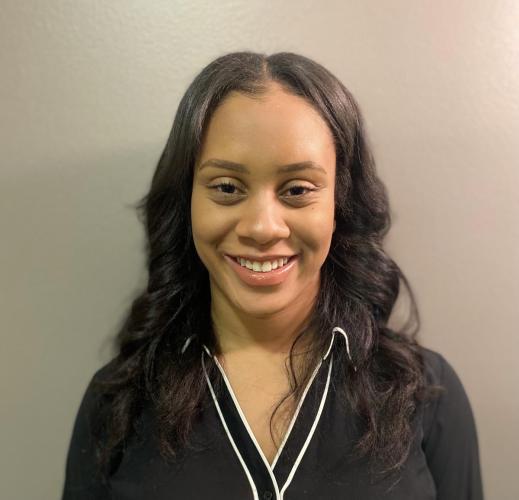
Sydney L. Carr is a Ph.D. Candidate at the University of Michigan in the Department of Political Science and the Ford School of Public Policy. Her primary research interests include race, gender, and ethnic politics, public opinion, news media, and political communication. Specifically, Sydney’s work centers on political news discourse surrounding Black political leaders and its impacts on American public opinion. Sydney’s current project, “Television News Media and Public Opinion towards Black Female Political Elites,” explores the role of American consumption of television news media in impacting public beliefs surrounding Black female political elites. Sydney’s work is currently supported by the National Science Foundation Graduate Research Fellowship (2018). In addition, Sydney is a past recipient of the American Political Science Association Minority Fellowship (2018) and is a former Ralph Bunche Summer Institute Fellow (2017). Sydney earned her M.A. in political science from the University of Michigan and B.A. in political science from the University of Connecticut’s Honors Program.
CAWP Research Grant Recipients: Faculty/Post Graduates
Bridges: How Black Women Coordinate the Lawmaking Efforts of Identity-Based Caucuses
Abstract: Legislative caucuses are a key component to ensuring trust among legislators. Caucuses provide the social networking, information sharing, and work distribution necessary for success in polarized state legislatures. In the proposed project, we draw upon representational identity theory as developed in Brown (2014) that asserts that both collective and individual experiences shape the political behavior of Black women. As members of Black legislative caucuses and Women’s legislative caucuses, Black women bring the multiplicity of their identities to both legislative groups. Rather than a single axis approach, Black women bring to bear their full identity and how they seek to represent their constituents in coalition with Black men and women of varying ethno-racial identities. In doing so, Black women lawmakers may be able to build coalitions by drawing on those multiple identities and serving as bridges within race and gender based legislative caucuses. Or Black women may fail to be fully incorporated in either identity-based caucus. To better understand the experience of Black women in caucuses we propose to conduct case studies in two different states with both Black and women’s caucuses: Maryland and Louisiana. Our approach allows us to compare the experiences of three marginalized groups, Black women, Black men, and white women. Using virtual semi-structured interviews, we will probe subjects to reflect on their membership in caucuses and the benefits and drawbacks of participation across a range of vectors including: personal, electoral, and policy matters. We will also collect press releases, news accounts, and primary documents from both the Black and Women’s caucuses in these states. Our proposed project will offer a window into the world of legislatures from the perspective of identity politics.

Nadia E. Brown is an Associate Professor and University Faculty Scholar of Political Science and African American studies at Purdue University. In July 2021, she will be a full professor of Government and the director of Women’s and Gender Studies at Georgetown University. Professor Brown is the author of the award-winning Sisters in the Statehouse: Black women and Legislative Decision Making. She is the co-author of Sister Style: The Politics of Appearance for Black Women Political Elites with Danielle Lemi. Professor Brown is the lead editor of Politics, Groups and Identities.
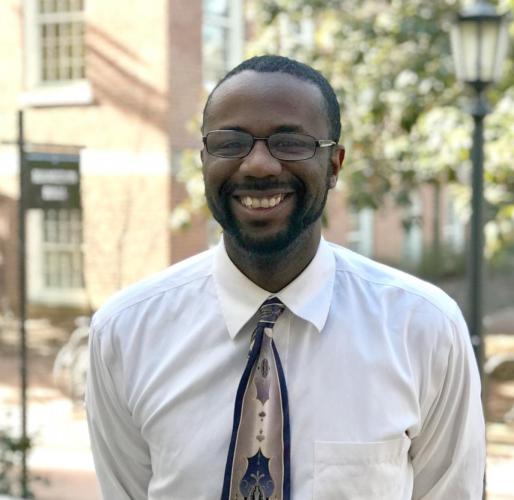
Christopher Clark is Associate Professor of Political Science at the University of North Carolina at Chapel Hill. His research focuses on minority representation, with a particular interest in subnational politics. He is author of Gaining Voice: The Causes and Consequences of Black Representation in the American States (Oxford University Press, 2019), as well as several peer-reviewed journal articles. He teaches classes on minority representation, race and politics, and state politics.

Anna Mitchell Mahoney is an Administrative Assistant Professor of Women’s Political Leadership at Newcomb Institute at Tulane University. In 2016, she became Director of Research for the Institute. Anna’s research is centered on women’s representation and gendered institutions, which is explored in her book, Women Take Their Place in State Legislatures: The Creation of Women’s Caucuses (Temple University Press, 2018). She has published articles in Politics & Gender, Representation, and Legislative Studies Quarterly.
Conceptualizing Caregiving and its Consequences for Attitudes and Engagement
Abstract: The COVID-19 pandemic has laid bare and exacerbated the challenges of caregiving, particularly for women (Gates 2020). Typically, women in the U.S. do the majority of familial caretaking (Herd & Harrington Meyer 2002); during the pandemic, women face even greater challenges related to child and elder care and often devastating economic consequences (Gupta 2020, Horsley 2020, Kitchener 2020, Power 2020). Women of color have felt these effects most acutely (Bedford 2020, Holpuch 2020). In this project, we ask how the caregiving responsibilities that women often take on (e.g. childcare, elder care, sibling care, and the anticipation of those responsibilities) structure their political engagement and policy attitudes, focusing in particular on the context of the pandemic. Through an original survey and in-depth interviews, we analyze how the pandemic influences caregiving responsibilities and perceptions across diverse segments of the population and explore whether (and if so, how) women, whose time and resources are consumed by their caretaking responsibilities, are still able to make space for political engagement. Our analysis will help us promote women’s political power in two practical and critical ways. First, it will help us understand the barriers placed by caregiving responsibilities, and thus put us in a better position to overcome them. Second, it will shed light on the opportunities and skill sets the caregiving experience provides for women in the political sphere. In painting a fuller picture of the relationship between caretaking and political engagement, we hope to help change and challenge traditional conversations around gender and care. More specifically, our work can help a) candidates and aspiring political actors better highlight and even celebrate their caregiving expertise and experience, and b) policymakers better frame and craft solutions to caretaking inequities.

Ivy A.M. Cargile is an Assistant Professor of Political Science at California State University, Bakersfield. She is co-editor of The Hillary Effect: Perspectives on Clinton’s Legacy (Bloomsbury Publishing, 2020), other book chapters, and articles related to race and ethnic politics and women in politics. You can find more information on Dr. Cargile here.

Jill S. Greenlee is an Associate Professor in Politics and Women’s, Gender & Sexuality Studies at Brandeis University. She is the author of The Political Consequences of Motherhood (2014, University of Michigan Press), and numerous articles that investigate topics related to political socialization. You can find more information on Dr. Greenlee here.
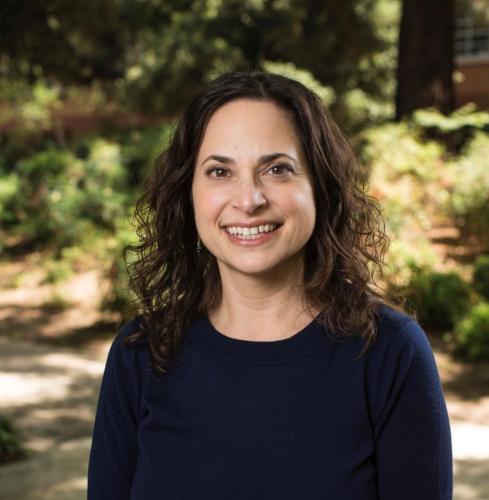
Jennifer L. Merolla is Professor of Political Science at the University of California, Riverside. She is co-author of Democracy at Risk: How Terrorist Threats Affect the Public (2009, University of Chicago Press), Framing Immigrants: News Coverage, Public Opinion and Policy (2016, Russell Sage Foundation), and numerous articles on how the political environment influences political behavior. She is also co-editor of The Hillary Effect: Perspectives on Clinton’s Legacy (2020, Bloomsbury Publishing). You can find more information on Dr. Merolla here.
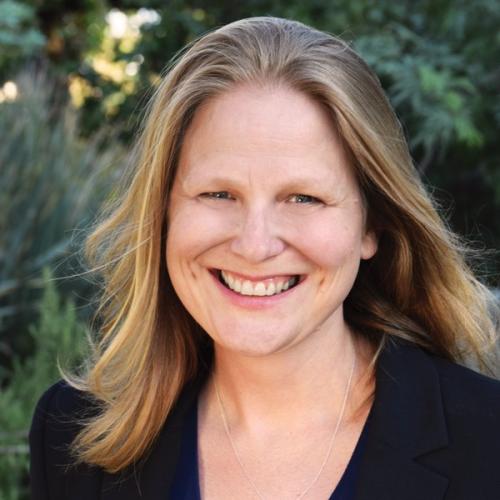
Rachel VanSickle-Ward is a Professor of Political Studies at Pitzer College in Claremont, California. Her books include The Devil is in the Details: Understanding the Causes of Policy Specificity and Ambiguity (SUNY Press, 2014), The Politics of the Pill: Gender, Framing, and Policymaking in the Battle Over Birth Control (Oxford University Press 2019) and (as co-editor) The Hillary Effect: Perspectives on Clinton’s Legacy (Bloomsbury Publishing, 2020). You can find more information on Dr. VanSickle-Ward here.
Addressing Women’s Safety to Vote
Abstract: According to the Centers for Disease Control and Prevention, approximately one in four women have experienced some form of intimate partner violence in their lifetime. Beginning in 1991, states enacted address confidentiality programs to protect the addresses of survivors of intimate partner violence in public records, including voter registration. Approximately three-quarters of states have instituted address confidentiality programs to create legal, substitute addresses for survivors to escape abusers and retain their right to vote. The programs vary in terms of the eligibility, participation requirements, and degree of protection. In this project, I explore what factors led to states’ adoption of address confidentiality programs and what explains the varying levels of coverage in the address confidentiality programs. I aim to create a publicly available website of the data that advances the protection of survivors and encourages states and the national government to enhance these programs.
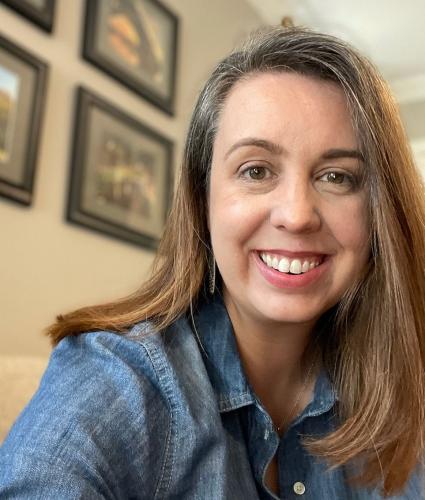
Emily M. Farris is an Associate Professor of Political Science and core faculty of Comparative Race and Ethnic Studies at Texas Christian University. Her research in American Politics focuses on subnational politics and explores questions of representation and participation in regard to gender, racial, and ethnic identity. You can find more information on Dr. Farris here.
The U.S. Mayors Survey: Psychological Abuse and Physical Violence – The Longitudinal Perspective
Abstract: Violence against women in politics is increasingly cited as a deterrent to their political participation. In 2019, the first research study in the United States that focused on psychological abuse and physical violence against officeholders reported that women mayors were more likely to experience psychological abuse and physical violence than men. Building on this foundational research, its co-authors are joining with leaders from the Mayors Innovation Project (MIP) housed at the COWS think tank at the University of Wisconsin and Equity Agenda to develop a biennial survey of mayors. For this proposed longitudinal research, we will expand the original survey questionnaire and will include a larger group of mayors than the original research so that we can better examine intersectional differences in the frequency and expression of abuse/violence.
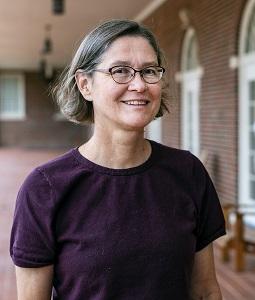
Rebekah Herrick is a Professor and Interim Head of the Department of Political Science at Oklahoma State University. Her research interests concern issues of representation particularly as they relate to gender and race in the United States. Presently her research focuses on violence against women in politics and issues of voter turnout, particularly as they pertain to women and Indigenous Americans. Her work has appeared in The Journal of Politics, Politics & Gender, Social Science Quarterly, American Politics Review, and many other journals.

Sue Thomas is Senior Research Scientist at Pacific Institute for Research and Evaluation. In addition to PIRE publications, she has published seven books and many journal articles, book chapters, encyclopedia entries, and book reviews on women, politics, and policy. In 2020, she was the recipient of the Malcolm Jewell Enduring Contribution Book Award from the State Politics and Policy Section of the American Political Science Association for her book How Women Legislate.
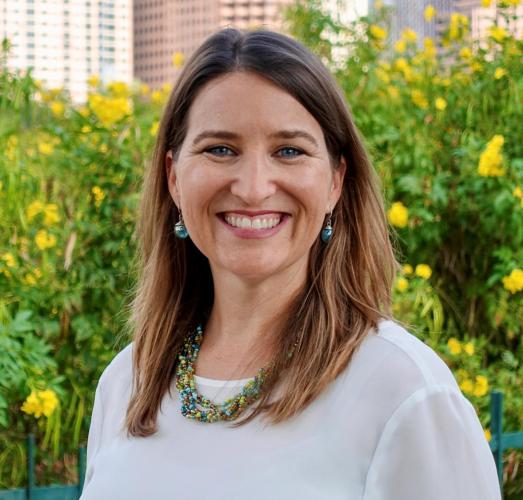
Heidi Gerbracht, Founder of Equity Agenda, focuses her work at the intersection of local government, women's rights, and gender equity. As former board chair of Annie's List, she understands deeply the concerns of local and state women candidates and elected officials. Together, Equity Agenda and the Mayors Innovation Project co-founded and collaboratively lead the Women Mayors Network, which is an ideal vehicle to disseminate research findings and provide continuous policy implementation support for this biennial mayoral survey. With nationally-networked local government practitioners joining with researchers, this new study can be effectively disseminated to policymakers to affect policy change and, ultimately, help keep elected candidates and officeholders safer.

Ceri Jenkins is Co-Managing Director of the Mayors Innovation Project, a national peer-to-peer learning network of mayors, which focuses on equity, democracy and sustainability. Ceri leads MIP’s work to advance equity through leadership and governance support of new mayors and women mayors. Ceri helps produce a range of content for peer learning meetings of city leadership and has authored papers on a variety of progressive local policies.
Latina Leadership and Activism in Colorado
Abstract: This research undertakes an expansive study of Latina leadership in Colorado, focusing on Latina pathways to and within public office, as well as their role in community and social justice organizations. The project will work towards providing a more thorough mapping of Latina engagement across the political terrain, characterizing when, where, why, and how Latinas engage politically, and exploring the form and impact of this engagement. While much of the emphasis will be placed on conducting an in-depth exploration of contemporary Latina leadership and activism in the state (using a mixed-methods approach), this study places Latina leadership in Colorado within the larger historical and geographic context. The case study will be paired with a comparative small-n analysis including other states in the Southwest (Arizona, California, Nevada, New Mexico, Texas, and Utah), laying the groundwork for more extensive comparative studies in the future.

Celeste Montoya is an Associate Professor of Women & Gender Studies and Political Science and the Director of the Miramontes Arts & Science Program at the University of Colorado Boulder. Her research focuses on gender, race, and intersectionality as it pertains to political representation, social movements, and public policy. She is author of From Global to Grassroots (Oxford University Press 2013) and co-editor of Gendered Mobilization and Intersectional Challenges (ECPR Press) as well as numerous articles and book chapters.
Mujeres, Movidas, y Movimiento: Comparative Study of Latina Candidate Emergence and Political Mobilization in California and Texas
Abstract: Latinas figured prominently in 2018 general election as candidates for political office, as political organizers, and as a key portion of the electorate in states with competitive races for Congress and governors' offices (Pew 2018, Sampaio 2018). While 2018 proved to be a defining election year for women of color generally and Latinas specifically, the volume and diversity of Latina candidates running for national office in 2020 surpassed the records set in 2018 (CAWP 2020). In particular, California and Texas represent two vastly different political landscapes with divergent political histories regarding Latina political participation and empowerment. This research will examine the emergence of Latina candidates for national office in 2018 and 2020, looking specifically at how the experiences of Latina congressional candidates in California and Texas compared with each other and drawing lessons about these states for Latinas running for national office across the country. The research will utilize feminist ethnography to collect interviews and observational data from Latina congressional candidates in both California and Texas as well as political consultants and fundraisers who were instrumental in congressional races featuring Latina candidates.
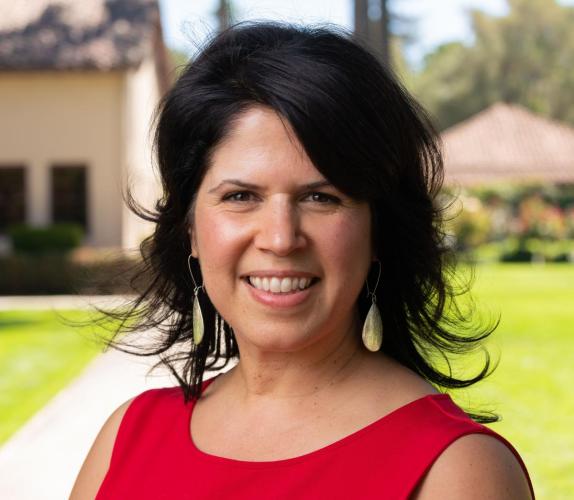
Anna Sampaio is Professor of Ethnic Studies and Political Science, and Chair of the Ethnic Studies Department at Santa Clara University, with specializations in immigration, Latina/o/x politics, race and gender politics, intersectionality, and transnationalism. She is the author of Terrorizing Latina/o Immigrants: Race, Gender, and Immigration Politics in the Age of Security (2015), which won the 2016 American Political Science Association award for the Best New Book in Latina/o/x Politics; and co-editor of Transnational Latino/a Communities: Politics, Processes, and Cultures (2002). Her research on Latina/o/x politics has been published in both research-centered and public-facing outlets including International Feminist Journal of Politics, Latino Decisions, NACLA, New Political Science, Politics Groups and Identities, Political Research Quarterly, PS: Political Science and Politics, The Gender Policy Report and Washington Post. Dr. Sampaio’s current work examines the history of Latina political participation and activism in the U.S. You can find more information about Dr. Sampaio here.
Running for Justice? Understanding Black Women Judicial and Prosecutorial Candidates
Abstract: There is a growing body of literature that points to the impact of judicial decision making and prosecutorial discretion in the increasing gap in criminal justice outcomes for racial minorities in the United States. While scholars have attended to how judges and prosecutors are implicated in the racial disparities in convictions and sentencing, less attention has been paid to who runs and serves in these offices – particularly when these offices are elected positions. Judges and prosecutors are overwhelming white and male. However, the 2018 election brought a great deal of excitement due to a number of Black women being elected to the ranks of judges and prosecutors. This excitement comes at a time in which the relationship between people of color and the criminal justice system is likely at its most complicated. More attention is on judicial and prosecutorial decision making because of police violence against Black people in the United States. The proposed project seeks to evaluate why Black women seek elective office for criminal justice positions and how their presence in these roles influences group members’ attitudes about the criminal justice system. I take a multi-method approach to address these questions (using interviews, an experiment, and election data). The goal of this multi-method approach is to reveal how Black women think of themselves as candidates for these positions, to understand how the public views Black women when they run, and to capture the contexts in which we are more or less likely to see Black women run for judicial and prosecutorial office.
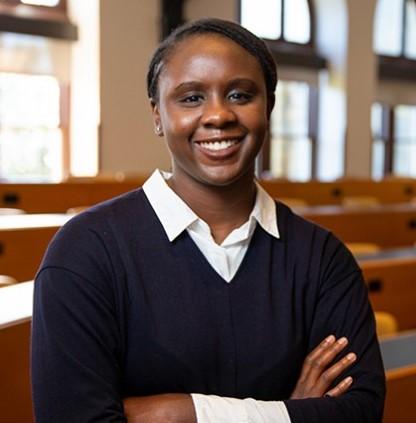
Jamil Scott is an Assistant Professor at Georgetown University. Her work examines how Black people, particularly Black women, engage in political participation. She is particularly interested in the personal, social and political factors that lead Black women to run for office.

